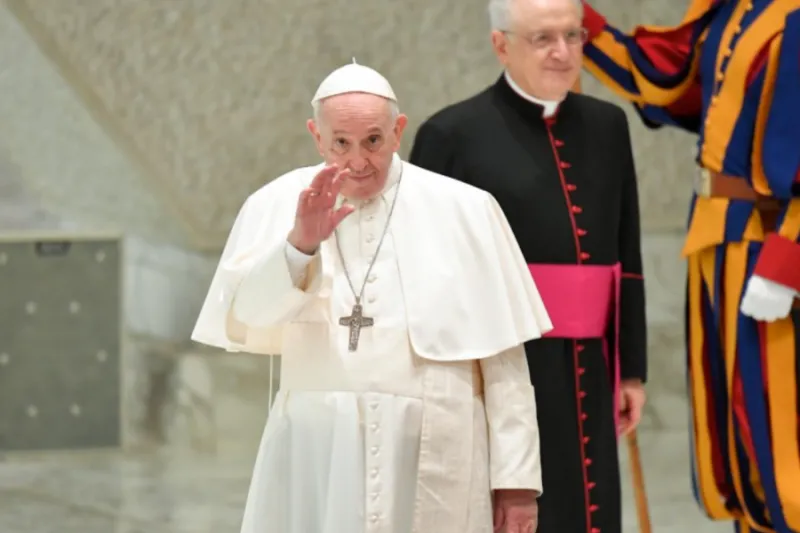
Vatican City, Sep 22, 2021 / 04:30 am (CNA).
Pope Francis said Wednesday that the Christian faith in Europe is being diluted by consumerism and ideologies, making prayer and the witness of humble love especially needed today.
“Pray, because this is what the People of God are called to above all: to worship, to pray, to journey, to wander, to do penance, and in this to feel the peace and the joy that the Lord gives us,” the pope said in the Vatican’s Paul VI Hall on Sept. 22.
“And this is of particular importance on the European continent, where the presence of God … is being diluted by consumerism and in the ‘vapors’ of a unitary way of thinking … that is the fruit of the mixture of old and new ideologies,” he said.
The pope dedicated this week’s live-streamed general audience to a reflection on his recent trip to Hungary and Slovakia, which he called “a pilgrimage of prayer in the heart of Europe.”
Pope Francis said that his apostolic journey on Sept. 12-15 began in Budapest with adoration of the Eucharist and ended with “popular piety” in Slovakia as he celebrated the country’s national feast of Our Lady of Sorrows at the Shrine of the Virgin of Seven Sorrows in Šaštín.
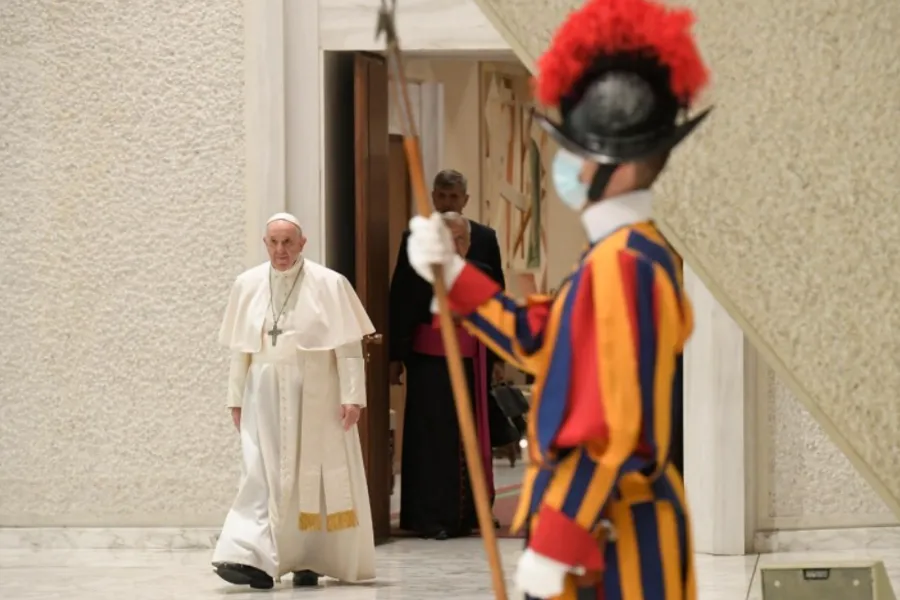
Pope Francis said that the answer to Europe’s watered-down faith was the “healing that comes from prayer, witness, and humble love.”
“This is what I saw in the encounter with the holy people of God. What did I see? A faithful people that has suffered atheist persecution. I also saw it in the faces of our Jewish brothers and sisters, with whom we remembered the Holocaust. Because there is no prayer without remembrance,” he said.
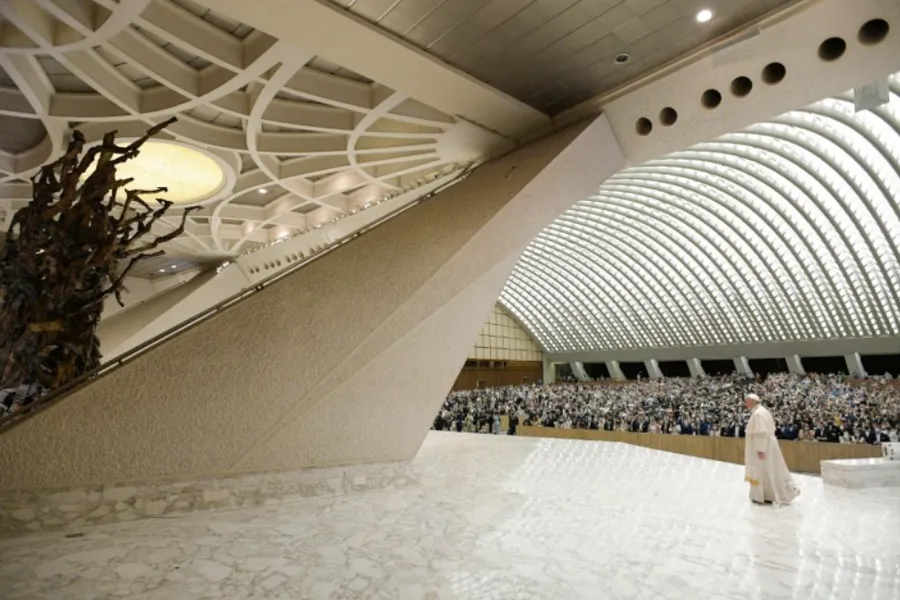
The pope met with members of the Jewish communities in Hungary and Slovakia. He recalled their suffering during the Second World War and deplored contemporary anti-Semitism.
“There is no prayer without memory. Prayer, the memory of one’s own life, of the life of one’s people, of one’s own history: making memories and remembering. This is good and helps to pray,” he said.
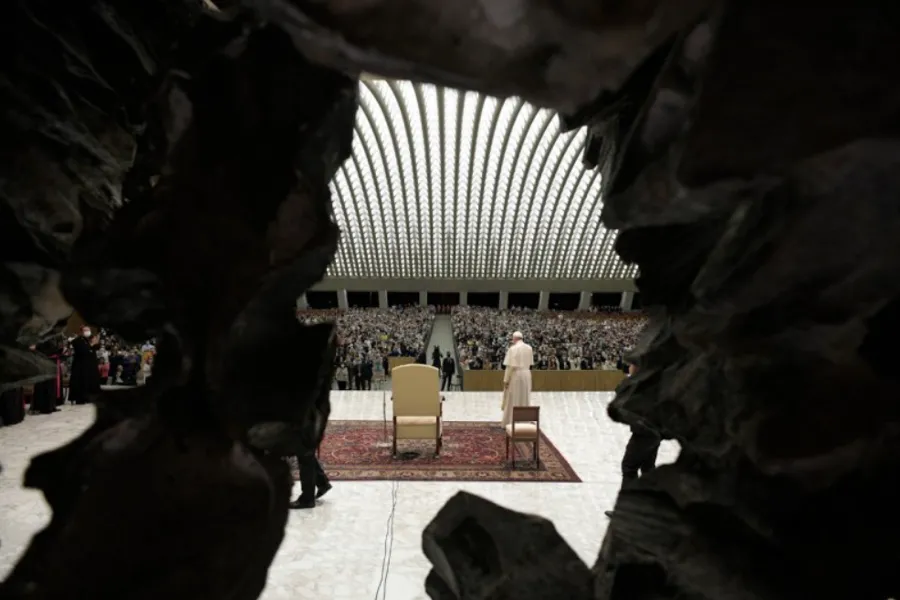
Pope Francis said that in his meetings with Catholic bishops in Budapest and Bratislava, he encountered directly the grateful remembrance of the deep roots of the Christian faith in Central Europe.
“Many times I have insisted that these roots are always alive, full of the lifeblood that is the Holy Spirit, and must be preserved as such: not like museum exhibits, not ideologized and exploited for the sake of prestige and power, to consolidate a closed identity,” Francis said.
“No. This would mean betraying them and making them barren,” he added.
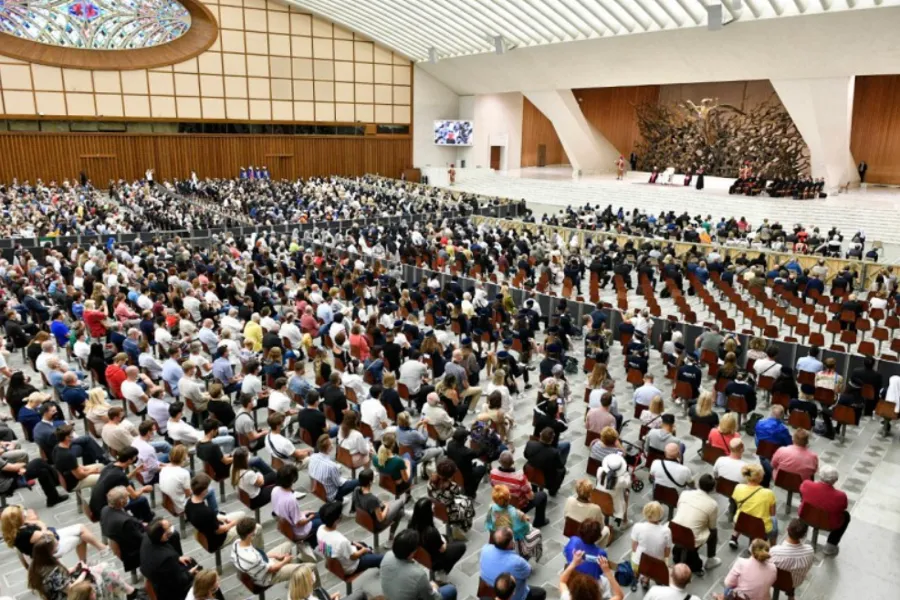
Pope Francis’ European trip began with a seven-hour visit to Budapest, where he met with Hungarian Prime Minister Viktor Orbán.
The pope told journalists during a press conference on his return flight that he had discussed ecology and his concerns about a “demographic winter” in Europe with Orbán, but did not touch on immigration, a topic on which they diverge sharply.
“During this journey to the heart of Europe, I often thought of the fathers of the European Union, as they imagined it, not as an agency for distributing fashionable ideological colonizations … Understood and experienced in this way, the roots are a guarantee of the future: from them, thriving branches of hope can grow,” the pope said at his general audience.
“You can grow to the extent that you are united to the roots: strength comes to you from there. If you cut off the roots with everything new, new ideologies, this will get you nowhere. It will not make you grow. You will end up badly,” he said.
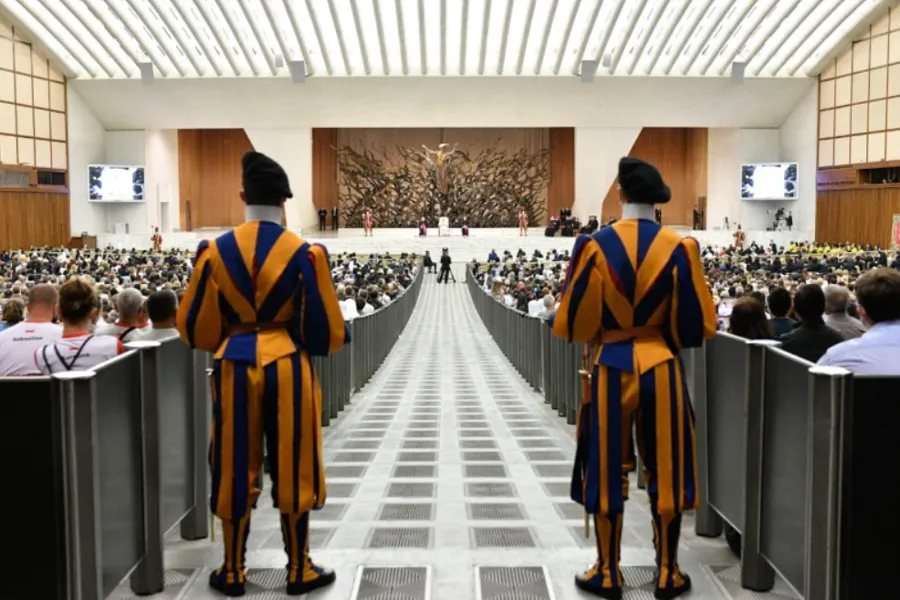
A group of refugees assisted by the Centro Mondo Migliore (Better World Center) was present at the pope’s weekly audience. They could be seen cheering and throwing their hats into the air as the pope gave them a special greeting and assured them of his prayers.
In his address, Pope Francis said that Sts. Cyril and Methodius, co-patrons of Europe, were not “figures to commemorate, but rather models to imitate.”
He described the ninth-century saints who spread the Gospel in Eastern Europe as “masters from whom we can always learn the spirit and method of evangelization, as well as civil commitment.”
In Budapest, Pope Francis became the first pope to visit the International Eucharistic Congress since the year 2000.
The pope noted that there was “great participation” in the concluding Mass of the week-long congress, which drew an estimated 100,000 people, according to local authorities.
“The holy people of God, on the Lord’s Day, gathered before the mystery of the Eucharist, by which they are continually generated and regenerated,” the pope said.
“They were embraced by the Cross that stood above the altar, showing the same direction indicated by the Eucharist, namely the path of humble and selfless love, of generous and respectful love towards all, of faith that purifies from worldliness and leads to simplicity.”
Pope Francis said: “Let us take up this idea again: that to be a Christian is to serve.”
If you value the news and views Catholic World Report provides, please consider donating to support our efforts. Your contribution will help us continue to make CWR available to all readers worldwide for free, without a subscription. Thank you for your generosity!
Click here for more information on donating to CWR. Click here to sign up for our newsletter.




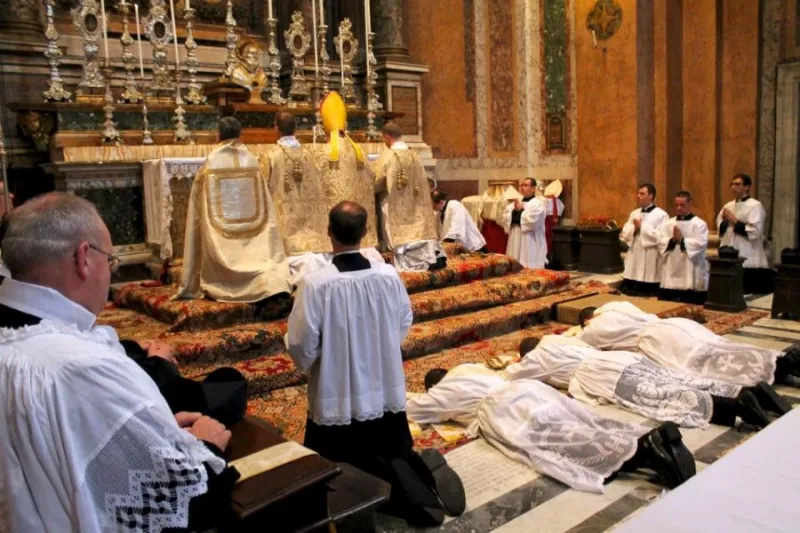
Is “the presence of God diluted by consumerism and a unitary way of thinking, of old and new ideologies”? Then the answer, “Francis discussed ecology and concerns about a demographic winter in Europe”. Consumerism [as an appeal to objectivity] is thrown in the “mix” of ideologies old and new, reference to theological teaching that traditional moral precepts are required for salvation. His frequent charge is that those who follow that path live by the rule of law rather than by its spirit. There is truth in that, a truth that doesn’t preclude the necessity of moral behavior and living by the spirit. Pope Francis’ emphasis however is not there, although he does frequently give good examples of personal charity. That is seen in what he discussed with Orbán. And duplicity in consigning traditional moral theology to an ideology. What some perceive as incoherent and ambiguously clumsy, an unfamiliarity with theology, seems more a clever modus operandi. Effect suggests that inference.
The Faith in Europe is being diluted by every word coming from the mouth of Jorge Bergoglio.